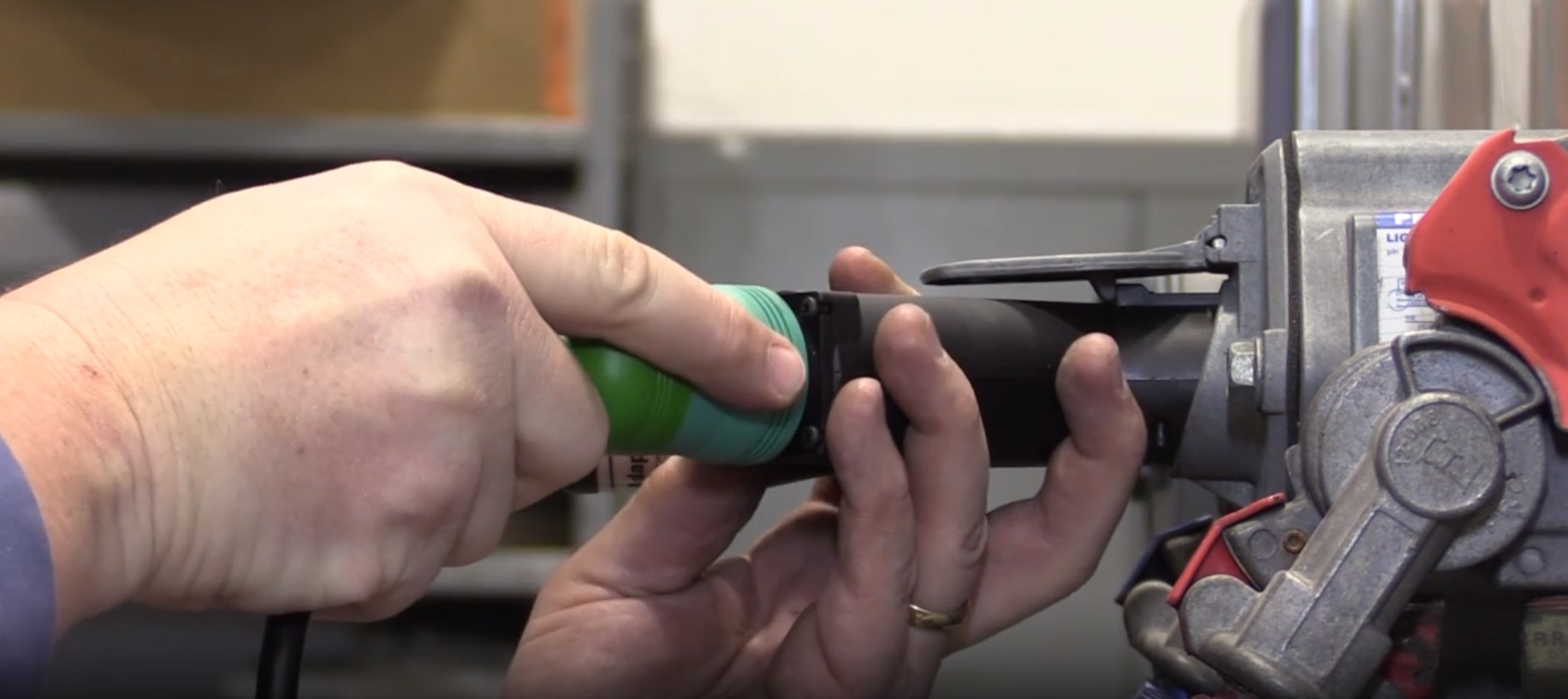The Automotive Aftermarket Suppliers Association (AASA) recently launched an aftermarket industry education campaign: “Know Your Parts.” The initiative’s goal is to educate all partners in the aftermarket supply chain from supplier to consumer about the importance of using quality, brand name products – and the hazards to the industry and to public safety posed by low cost, low quality parts.
Professional automotive technicians have already played a vital role in galvanizing this education campaign, and will continue to be integral to getting the message to consumers, according to Steve Handschuh, president and COO of AASA.
“Technicians are the ‘front line’ in the ‘Know Your Parts’ campaign,” Handschuh said. “We are reaching out to technicians as the main point of contact with consumers – we want to help them communicate effectively with their customers the importance of quality, brand name parts,” he added.
The ambitious “Know Your Parts” campaign was initiated by the AASA Marketing Executives Council (MEC). Since its formation in 2006, AASA MEC members have studied a growing trend among various aftermarket channel partners offering lower-cost, often lower-quality parts in an attempt to offer more competitive pricing and improve profit margins.
“The AASA Marketing Executives Council was organized three years ago to address common concerns as marketing professionals working for aftermarket suppliers,” explained Jack Cameron, AASA vice president and staff executive for the MEC. “Very early on, we identified a major concern: the proliferation of low-cost, poor quality parts in every level in the aftermarket distribution channel,” he said.
Technicians were an important source of information in the AASA MEC’s research into the issue. The Council held focus groups with more than 60 professional technicians and owners of independent repair shops. The focus groups represented a cross-section of automotive service – from Los Angeles on the west coast to the heart of the mid-west in Chicago to the growing southeast in Raleigh, NC.
The results of these focus groups, outlined in the AASA MEC Special Report, “Independent Repair Industry: Focus Group Findings on Buying Influences of Repair Professionals,” were enlightening.
The focus groups revealed that technicians depend on their supplier partners to provide the services they need such as cataloging, sales representation, warranty, and more – but they are largely unaware that the full service aftermarket supplier is the channel partner providing these services.
“Technicians do not buy directly from manufacturers, so it is understandable that they do not view the essential services offered by manufacturers to distributors as a motivation for loyalty toward a specific brand,” Cameron noted.
“But one point made clear from all the focus groups is that product quality is the Number One priority of technicians. Most repair professionals put quality above price and refuse to put their reputation at risk by installing inferior quality parts.”
The AASA MEC members realized that an industrywide educational effort was needed to address the issue of low quality parts and the threat these parts pose to public safety and the entire aftermarket’s reputation.
“Our entire association was mobilized by the comment heard from professional technicians across the county: ‘When it comes to quality, it comes down who will stand behind their parts,’” Handschuh emphasized.
Unlike generic versions of consumer products, auto parts are not required to list ingredients and may or may not meet original specifications – so technicians may be unaware of the risks involved with some low cost products.
“There is the potential for these low quality, low cost products to break during installation, becoming projectiles and endangering the technician working on the vehicle and everyone in the shop.” Handschuh said. “These parts also pose safety risks to the consumers driving the vehicles on which they are installed and to everyone traveling the highways and roads of our country.”
And low quality parts also pose a serious risk to the entire aftermarket’s reputation.
“As customers ourselves, we all know that one bad experience can turn us against a particular business,” said Cameron. “Independent repair shops stand to gain business now with the closing of car dealerships and their service departments across the country,” he explained. “But all it will take is a bad experience at an independent repair shop due to a faulty part will shake a consumer’s confidence in independent shops as a reliable place for automotive service – and drive them back to the O.E. dealer for service.”
The entire aftermarket supply chain will be the conduit for spreading the “Know Your Parts” campaign. The chain begins with “Full Service Supplier,” the manufacturers which provide the essential services including product specifications, quality control, product liability, research and development, and more.
“Bottomline – the Full Service Suppliers design the products they sell and then stand behind them regardless of where they are physically manufactured,” said Handschuh.
The next link is distribution by distributors, retailers and parts resellers. Unfortunately, in the drive to cut costs and compete solely on price, some of these partners bypass or supplement North American manufacturers and have begun to directly import products.
The implications of these low quality parts permeate the aftermarket supply chain. The manufacturer whose customer directly imports popular part numbers could face not only lost sales but the inability to cover the overhead costs associated with additional services such as sales force, cataloging and technical services that support the product line.
For the distributor who directly imports, the implications include quality control, intellectual property protection and product liability. All the legal responsibility rests squarely with the distributor – but these responsibilities would have been covered had the parts been purchased through a name brand manufacturer.
To the technician, low quality parts mean possibly having to do the job more than once – and the resulting damage to their reputation when a customer has to come back.
“We know that technicians want to do the job right the first time and that is why they value quality above all other buying influences,” Handschuh said.
To the consumer, the implication is safety. By specifying and authorizing only brand name parts, the consumer is assured of safety for themselves and their families.
The AASA “Know Your Parts” campaign has developed key education points to cover these very concerns for every part of the aftermarket supply chain. The independent automotive aftermarket industry must stand united and encourage:
• Full Service Suppliers to design, engineer and produce quality parts and to promote brand and essential services;
• Channel Partners to promote brand name products from trusted Full Service Suppliers and support suppliers’ programs instead of direct importing;
• Repair Professionals to diagnose, repair and replace broken or worn-out components with only premium quality parts;
• Vehicle Owners to ask about the parts being installed and research the brand before authorizing repairs.
“This campaign is not about lost sales to the full service supplier – it is about sustaining the public’s faith in the entire independent aftermarket,” said Steve Handschuh, president and COO of AASA. “It’s about stemming the tide of low cost, low quality parts that threaten not only our industry’s reputation, but public safety as well.”
The “Know Your Parts” campaign got a great boost in October from public service announcements featuring Steve Letarte, crew chief for Jeff Gordon and the No. 24 DuPont Chevrolet race team, reminding viewers to “know your parts” and use quality aftermarket parts. The spots aired during NASCAR events in October and will run during NASCAR programs in November on ESPN and the SPEED Channel. The PSAs were produced by NASCAR Performance with a grant from the University of the Aftermarket Foundation.
“We were really excited at the opportunity to partner with NASCAR Performance on this project and the PSA they produced is phenomenal,” Handschuh said. “We have offered it to members exhibiting at the annual Automotive Aftermarket Products Expo in November, so visitors at this year’s AAPEX will see it playing at several booths around the exhibit hall floor. Our special thanks also to NASCAR for donating the air time to run the new PSA.”
AASA has reached out to automotive service and technician associations to develop informational tools and materials that technicians and shop owners can use to help educate their customers, the vehicle owners.
“Our plan is to design materials for shop owners and techs and make them available through our “Know Your Parts” Web page, which can be accessed by clicking the “Know Your Parts” logo on the home page of our association Web site, www.aftermarketsuppliers.org,” Cameron said.
“Our message for professional technicians is to investigate before installing or offering a low-cost part,” said Cameron. “If information on the manufacturer can’t be easily found, then the part probably isn’t a good choice to use on a customer’s vehicle,” he added.
“The full service supplier members of AASA firmly believe that it is not important where a product is made but who stands behind it,” Handschuh added. ““The ultimate goal of ‘Know Your Parts’ is to help everyone in the supply chain to make a better informed decision when choosing auto parts,” he said.
For more information about the “Know Your Parts” campaign, visit www.aftermarketsuppliers.org or e-mail [email protected].


